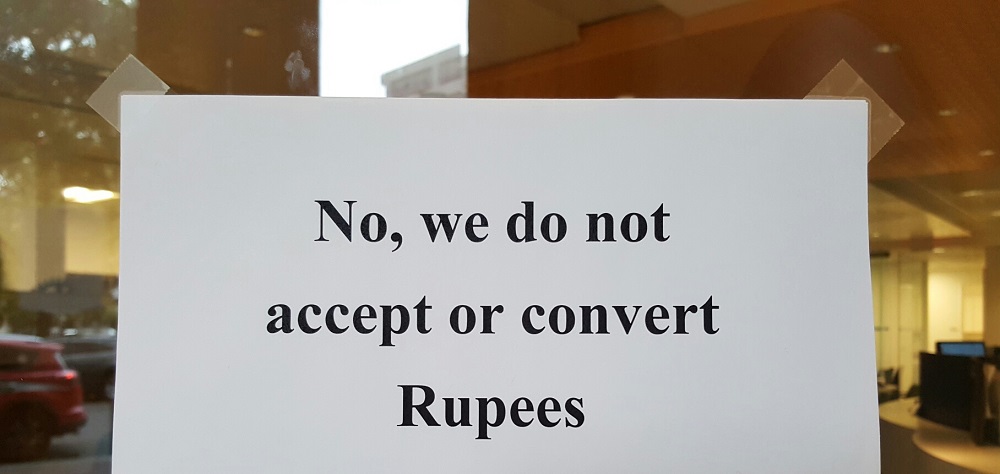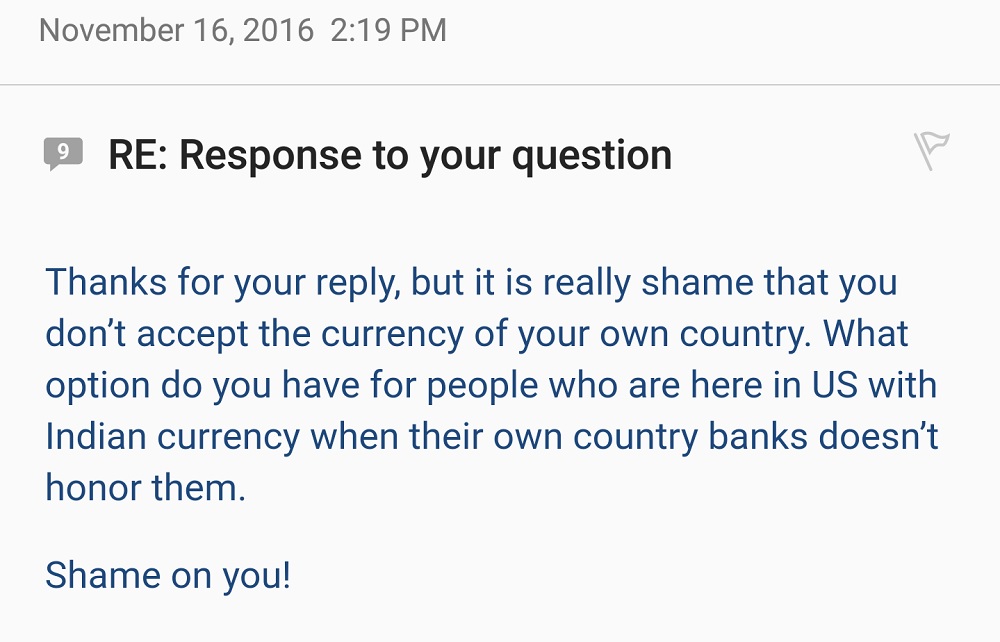
Core Legislation and Responsibilities of Anti-Money Laundering Laws in Lithuania
Anti-money laundering legislation was established in the country of Lithuania, a member of the European Union, on June 19, 1997 through the Anti-Money Laundering and Terrorist Financing Prevention Law [herein the “AML Law”]. The Financial Crimes Investigation Service (FCIS) under the Ministry of the Interior of the Republic of Lithuania is responsible for overseeing, monitoring and preventing money laundering and terrorist financing (AML/TF) in the country. FCIS is also the designated financial intelligence unit (FIU) of Lithuania (DOS, 2015).
The codification of the AML law came from guidance of the European Union, to which Lithuania was seeking accession at the time. As an EU country, transnational AML directives are intended to supersede local laws, although member countries can refuse to implement them presuming they accept negative reporting, fines, and potential sanctions from EU agencies. However, Lithuania is on the EU White List of Equivalent Jurisdiction, meaning that AML laws are expected to be similar throughout all EU member states (KYC, 2016).
Subsequent to the law’s original inception, 22 amendments have been added. The primary rationales for adding the amendments were EU compliance requirements that would better reflect current market conditions. The most recent implementation of an amendment occurred in January 2015. The changes made included the addition of CDD (Customer Due Diligence) obligations (covered in Section V) and record keeping and STR (Suspicious Transactions Reporting) systems (covered in sections III & IV) which MONEYVAL saw as shortcomings in the previous laws. FCIS also began implementation of new, more efficient procedures for electronic reporting measures.
Article 3 of AML Law (IBA, 2014) identifies the financial and non-financial institutions responsible for the prevention of AML/TF. In Lithuania, the law applies to more than just financial institutions, and through amendments added in 2009 & 2010 it now includes under its purview the transactions of government institutions, banks, lawyers, notaries, and cultural agencies, including:
Table 1. AML/TF Required Institutions
Entity Inclusion Legislation
Customs Departments and those overseeing the importation/exportation of goodsOriginal law
Department of Cultural Heritage and those trading in movable cultural properties and/or antiquesAML Law guidelines issued on February 9, 2010
Gaming Control Authority and those supervising gaming companiesAML Law guidelines issued on February 28, 2009
Chamber of Notaries AML Law guidelines issued on June 23, 2009
Chamber of Auditors and those in regulatory rolesAML Law guidelines issued on June 10, 2009
Lithuanian Chamber of Bailiffs AML Law guidelines issued on June 10, 2009
Lithuanian Assay Office and those trading in precious stones and/or metalsAML Law guidelines issued on May 15, 2009
Lithuanian Bar Association and those who supervise lawyers and assistantsAML Law guidelines issued on July 2, 2009
Source: MONEYVAL, 2012, pp.26-27
Lithuanian Participation in International Bodies Overseeing AML
Lithuania is a small country of only 2 million people. It has a strong economy, but suffered considerably during an economic downturn beginning in 2008/9, which lead to an increase in organized crime (FCIS, 2015; Gutasukas, 2011). Therefore, there are still challenges in the implementation of its AML laws because it lacks logistical and legal mechanism in some areas of enforcement, especially in terms of terrorist financing (CoE, 2006). Much guidance and pressure of Lithuanian practices to combat money laundering comes from its membership in several organizations, especially the European Union agencies.
Currently, Lithuania is a member of MONEYVAL, a committee within the EU’s Council of Europe that oversees Anti-Money Laundering measures and ensures member state compliance with EU directives. MONEYVAL is a member of the Financial Action Task Force (FATF), and, as such, oversees compliance in European countries that may not necessarily be members of FATF, such as Lithuania. One of the more significant FATF recommendations is for the countries to assess their national risk levels for money laundering and terrorist financing (2012). This recommendation was adopted by the EU as directive on May 20, 2015 making it applicable in Lithuania even though it is not a FATF member. As an EU member, Lithuania has to report to EU’s MONEYVAL committee on how it implements the FATF recommendations. As part of this requirement, Lithuania conducted a national risk assessment in 2015 by creating a working group of government agencies, as well as Deloitte Lietuva, a respected third-party auditing organization. According to the FCIS in Lithuania, such assessments will be conducted every 3 years with another one due next year (2018).
Lithuania is considered to be FATF AML compliant or largely compliant in 30 of the FATF 40+9 recommendations, with the “plus 9” have less applicability given that Lithuania is considered to be “low risk” in terms of potential money laundering associated with terrorist financing (FCIS, 2014). As of 2006, Lithuania reported no known cases of terrorist financing funneled through Lithuania. Lithuania predominantly relies on the UN and EU to investigate, identify, and freeze assets related to terrorist financing (CoE, 2006).
Some concerns highlighted in the IMF Report for Lithuania from 2014 found that, in accordance with the FATF 2012 report, there were “several deficiencies” with due diligence measures and transparency, especially within the financial intelligence unit and with regard to Politically Exposed Persons (PEPs; discussed in Section VI). As a response, the autonomy of the FCIS was enhanced (IMF Report, 2014).
Until 2015, the last European money laundering directive issued by the EU Parliament and the Council of Europe fully implemented in Lithuania through the AML Law was the third directive, with its last amendments as of December 2011. An additional fourth directive is expected to be implemented by summer 2017. On May 15, 2015 the European Parliament and Council of Europe issued directive number 2015/849 regarding money laundering and terrorist financing perpetrated through financial systems. The main goal of this directive was to eliminate ambiguities that existed in former regulations by providing even more stringent obligations for reporting and due diligence to combat terrorist financing.
This directive, commonly known as “IV AML/TF,” is slated to go into effect on June 26, 2017, which means that all EU member states were expected to have implemented it by that date.
The IV AML/TF is not fully implemented in Lithuania yet, as many financial institutions report that they are still trying to assess the cost of this implementation (Ambrasas, 2017). However, not implementing this directive on time could resolve in fines as well as reputational risks for financial institutions. Abstaining from implementation thus could present institutions with even greater costs. Fines for non-compliance to EU-based directives (MONEYVAL and FATF) in Lithuanian are assigned as a percentage of an institution’s overall operating revenue. The current fine for sanction violations is 10 percent of a company’s annual revenue, to be not less than 5 million Euros. Violations also threaten the loss of a company’s license to do business in Lithuania and across the EU.
While Lithuania’s relationship with the EU proves most influential in shaping Lithuania’s legislation and enforcement regarding AML, it is also a member of the Egmont Group, which is body of 152 Financial Intelligence Units (FIU’s), and an observer to the EAG (Eurasia Group). Most recently, Lithuania became a member of the Organization for Economic Cooperation and Development’s (OECD) Anti-Bribery Convention. Lithuania is also reviewed by other external agencies for their AML compliance. In 2016, the US Department of State Money Laundering Assessment (INCSR, 2016), Lithuania was deemed a ‘Monitored’ Jurisdiction, which means it is considered by the INCSR report to be a country on the list of those worldwide viewed by the Department of State as a “Major Money Laundering Countries” (DOS, 2012). However, its status as a monitored country is much less severe than those on the list of “Primary Concern” and “Concern.” The report states that Lithuania, which is not a major financial capital, has “adequate legal safeguards against money laundering” although its geographic location makes it primary location for the movement of goods and capital illegally. Importantly, the Department of State found no evidence of government participation in corruption related to money laundering (DOS, 2012).
Principal Offenses for Laundering Money in Lithuania
There are generally three types of money laundering in Lithuania: cash transfers to fake accounts; transfers to fictitious companies; transfers of funds either into or out of Lithuania resultant of a crime (often offshore accounts), and the acquisition of assets and stakes in companies either real or fictitious. Money laundering is codified in Part 1 of Article 216 of the Criminal Code as a criminal offense involving the possession of and/or intent to conceal the source of ill-gotten gains, with knowledge of their criminality, as a means to legalize or legitimate them (Burnes & Munro, 2017). Most money laundering in Lithuania involves sources from international organizations, criminal enterprises, or individuals, which is particularly problematic in Lithuania given that it is the easternmost border of the European Union from which assets and cash are transferred in or out to other non-EU countries (Gutauskas, 2011). The offense of money laundering does not only include money or cash, but also property (CoE, 2006).
Enforcement of AML legislation, including the seizure of assets and international cooperation, is increasing in Lithuania. According to latest annual report published by Lithuania’s monitoring body, the FCIS, there has been an increase in the annual number of Suspicious Transactions Reports (STR) in Lithuania due to the provision of more resources allocated to AML/TF laws, including compliance and training. In 2016 there were 541 Suspicious Transactions Reports (STR) compared with 393 in 2013 (FCIS). About half of the STRs, the required reporting mechanisms, came from the banking sector with the most common type of laundering was the establishment of fictitious businesses, smuggling, and tax evasion.
According to case study profiles of specific crimes committed in 2014, FCIS reported that most instances of money laundering in Lithuania were part of tax evasion “schemes” (also known as VAT fraud) primarily carried out in connection to organized crime’s association with the petroleum industry, human trafficking, smuggling of drugs and alcohol and other goods (Burnes & Munro, 2017; FCIS, 2015). Proximity to Russia, a major world supplier of oil, and Belarus, a closed totalitarian system, is one of the main reasons for schemes involving tax evasion and the smuggling or underreporting of goods over the border (DOS, 2012). In 2006, 88 known organized crime groups were believed to be involved in some type of money laundering activity in Lithuania (CoE, 2006). VAT fraud or embezzlement is of particular concern to the FCIS because the Lithuanian government receives most of its revenues through VAT (Eurasian Group, 2013), In addition to the trade of oil, fraudulent accounting affects the metals and timber industries—the largest export industries in Lithuania. Within such tax schemes are the creation of fictitious companies through which money is funneled and the falsification of documents to avoid taxation (CoE, 2006; FCIS, 2015)
With the increases in monitoring/reporting of potentially fraudulent transitions comes an increase in the amount of assets seized. Confiscation of property illegally acquired is covered by Article 72 of the AML law, including property directly or indirectly acquired through the commission of a crime (CoE, 2006). According to the FCIS report (2016), a total of 10.2 million EUR were seized in 2016, up from 9 million EUR the year before. The report also shows that in 2015 there were 57 prosecutions and 12 convictions related to money laundering in Lithuania, showing enforcement through the use of the legal system. There is no data for 2016 as of yet.
Lithuania has also increased their willingness to coordinate with other governments and agencies to monitor cross-national AML transactions. FCIS received 163 inquiries from other financial crimes watchdog groups in other countries (FCIS). More information about the success of Lithuanian enforcement and legislation should emerge in 2018 when the national working group assessment team (discussed in section I) undertakes its next three-year review.
Approaches to Money Laundering in the Context of “Predicate Crimes”
Money laundering is covered under several articles of the Criminal code, including 216 of the Penal Code and article 250 PC for the offense of terrorist financing. Lithuania applies an “all crimes” approach to criminalization of money laundering. As such, all criminal offenses that result in the generation of assets (cash or property) are considered “predicates” to the crime of laundering money. These include cases such as trafficking, racketeering, fraud, piracy, smuggling, extortion, and the like. Indirect and well as direct proceeds of the crime are covered, and in certain cases, the perpetrators of crimes related to money laundering can be tried under Lithuanian law even if they are not Lithuanian citizens. Prosecution of crimes inter alia are also covered by Lithuanian law when individuals arrange to commit a crime. Furthermore, a crime is prosecutable even if the predicates originated in states other than Lithuania. (CoE, 2006, p. 37-8). The consequences for money laundering are fines, arrest, and/or imprisonment for up to 4 years (Burnes & Munroe, 2017), with VAT fraud subject to up to 8 years in Lithuania (Eurasian Group, 2013).
The Regulatory Sector and the Obligation to Report “Suspicion”
The AML/TF law in Lithuania holds many kinds of entities responsible for reporting suspicious activities ranging from financial services institutions to insurance companies to postal providers. The reason including such as wide swath of kinds of agencies is in line with their “all crimes” approach that holds the purveyors of the crime accountable, not just those who hold the outcomes of the crime (such as the laundered money). All required entities and individuals are expected to report any suspicious activities by filing STR’s and submitted them to the FCIS for investigation (Ambrasas, T., 2017). Failure to do so will result in fines (most commonly) or imprisonment for up to a year (Burnes & Munro, 2017).
In Lithuania, financial and non-financial entities charged with prevention of such activities are broadly conceived. The law mandates legal accountability for Designated Non-Financial Businesses and Professions (DNFBP) in addition to financial institutions, as Table 2 shows.
Table 2. Entities Obligated to Report
Financial service institutionsGambling service providersAuditorsPostal service providersInsurance companies (life insurance activities & broker firms included)Investment companiesEmployees of tax agenciesIndividuals and dealers who sell non-movable objects as well as precious metals, movable cultural items, antiques and other items that are valued over 15,000 EUR and paid in cashAccountant firmsCompanies that provide business incorporating servicesNotaries and people having notary licenses
Source: CoE, 2006
More specifically, the Client Due Diligence (CDD) amendment added to Lithuania’s AML law in 2015 (See Section I) is required for all entities held accountable for AML/TF laws to provide more stringent accounting. The requirements outlined in this amendment provide even more intentional measures to identify and verify customers or the beneficial owners of goods or transactions. Additionally, the law requires entities to verify that transactions match the intended business purpose stated by the customers and the source of funds is established. Also, AML/TF-covered entities are now expected to perform an ongoing monitoring of their client’s business relationships to prohibit potential laundering.
Furthermore, Lithuanian AML Law specifies that Enhanced Due Diligence (EDD) should be performed in additional situations as well when a foreign Politically Exposed Person (PEP) is involved, a prior shortcoming noted in the IMF report (2014) discussed in section II, or when there is a great probability or risk of money laundering and/or terrorist financing. Such relationships are expected should be continuously monitored with “enhanced” procedures that require further investigations into the client or termination of the relationship when money laundering is suspected. Organizations subject to EDD are permitted to rely on due diligence by a third party as long as the provider is properly registered and follows the same or similar requirements as the engaging organization is required to follow. Important to potential areas of improvement in due diligence legislation is the fact that EDD pertains to foreign PEPs, but not domestic ones. (DOS) However, the fourth ML/TF directive does include PEP’s that are domestic or within the EU.
Lithuania further has a “Known Your Customer” (KYC) rule of identifying and establishing client identities. Furthermore, organizations are prohibited from “tipping off” anyone under investigation once a complaint has been filed with FCIS (Burnes & Munro, 2017).
Mens Rea & Money Laundering
There are several definitions of money laundering in Lithuania, which complicate enforcement (Burnes & Munroe, 2017). According to Lithuanian laws, one can be convicted of a crime if actus reus (physical commission of a crime) and mens rea(willful intention or knowledge of wrongdoing) are proven. The law in Lithuania was amended in 2004 to include “knowledge” of the crime as a punishable offense, with conversion, concealment, and acquisition of property or money all punishable by law. As such, to be prosecuted, the person must knowingly be party to the crime committed in the acquisition of goods or money, but does not necessarily have to be engaged personally in the act of concealment of the crime to be held accountable for it (Burnes & Munro, 2017).
Persecution of money laundering is largely influenced by the seriousness with which the EU approaches its legislation across all member states. The EU’s fourth directive considers money laundering to be a criminal crime and classifies it amongst the category “Serious Crimes.” EU directives apply mens rea so a lower count can be suitable for persecution in court. Their directives hold the leadership of organizations accountable, inclusive of anyone who has AML understanding and knowledge or who has enough understanding on this subject.
In 2011, Lithuanian Parliament amended the code XIP-1678(2) (Secretariat, 2011) to increase the fines for money laundering and terrorist financing. The purpose of the amendment was to be more effective and proportionate in administering punishment that would discourage the crime. Fines increased for failing to properly identify the person or beneficiary of a transaction and for failing to report suspicious activity. This was based on recommendations that critiqued divisions of power between those who oversaw the intention to commit money laundering (the FCIS) and those who investigated the perpetration of crimes (the police) (CoE, 2006).
Summary of the Situation in Lithuania
While Lithuania is part of the EU and is subject to the oversight of its membership organizations and outside parties, it still has numerous challenges in the implementation of its anti-money laundering and terrorist financing laws. Lithuanian legislation is responsive to organizational recommendations, including a broad understandings of accountability with regards to covered entities, but enforcement remains an area for improvement, especially as the potential for money laundering remains high given its geographic location. There are many instances in which Lithuania could better address the concerns of the past evaluations, including having a more concise definition of money laundering and implementing enforcement mechanisms that hold parties accountable for following enhanced and customer due diligence requirements.
Recently, EU regulators noted that institutions in Lithuania are still failing to implement the minimum requirements necessary to identify their customers, as they still use old technologies and paper forms for information gathering. Furthermore, Deloitte’s reports found that financial institutions don’t have adequate software to identify the “red flags” of ML/TF transactions (Ambrasas, 2017). Also, most EU countries criminalized ML/TF as a “serious crime”, but they do not necessarily share a definition on what actions constitute the perpetuation of the offense. The result of this is EU-wide inconsistencies in the persecution of money laundering. Moreover, organized crime is common in Lithuania, and often they seek to operate in countries with the weakest AML/TF regulations.
Nevertheless, prosecuting individuals and organizations for their failures to implement AML/TF laws in sectors such as insurance and banking is growing across the EU. This raises a question about how ready Lithuania is for the future of AML/TF implementation and enforcement. Can Lithuanian institutions better coordinate with other countries, as most money laundering in Lithuania has origins outside its borders, and will it invest in the infrastructure to carry out the needed oversight? No doubt, Lithuanian AML/TF laws have undergone significant revisions to go after offenders, especially those in organized crime, but they still face great challenges ahead.
_________________________
Resources:
Ambrasas, T. (2017), The fight against money laundering threat is gaining momentum [kova su pinig? plovimo gr?sme ?gauna pagreit?]. Retrieved from: https://www2.deloitte.com/lt/lt/pages/legal/articles/kova-su-pinigu-plovimo-gresme-igauna-pagreiti.html
Burnes, W.H. & Munro, R.J. (2017). Money Laundering, Asset Forfeiture and Recovery and Compliance: A Global Guide. NY, NY: Matthew Bender & Company. Retrieved from LexisNexis.
Council of Europe Secretariat General of Legal Affairs (CoE) (2006). Third Round Detailed Assessment Report on Lithuania: Anti-Money Laundering Forum and the Combatting of Terrorist Financing. Retrieved from http://www.coe.int/t/dghl/monitoring/moneyval/Evaluations/round3/MONEYVAL(2006)12Rep-LTU3_en.pdf
Eurasian Group on Combating Money Laundering and the Financing of Terrorism (Eurasian Group) (2013). Tax Crimes and Money Laundering Typology Report. Retrieved from http://www.eurasiangroup.org/files/Typologii%20EAG/Nalogovye_prestupleniya_Eng.pdf
Financial Crimes Investigation Service under the Ministry (FCIS) of the Interior of the Republic of Lithuania (2015). Lithuanian National Risk Assessment of Money Laundering [Lietuvos Respublikos Nacionalinis pinig? plovimo ir terorist? finansavimo rizikos vertinimas]. Retrieved from http://www.fntt.lt/data/public/uploads/2016/10/d2_nrv2015.pdf
Gutasukas, A. (2011). Economic Crisis and Organized Crime in Lithuania, Jurisprudence, 18(1), pp. 303–326.
International Bar Association (IBA) (2014, April 4) Anti-Money Laundering Forum, Retrived from https://www.anti-moneylaundering.org/europe/lithuania.aspx
Know your Country (2016, July) Risk & Compliance Reporthttp://www.knowyourcountry.com/files/lithuaniaamlaug14_7_.pdf
MONEYVAL (2012, December 4) Report on 4th assesment visit in Lithuaniahttps://www.coe.int/t/dghl/monitoring/moneyval/Evaluations/round4/LIT4_MER_MONEYVAL(2012)29_en.pdf
Secretary General of the Lithuanian Parliament (2011). Administrative Code 172(14) of the Law [Administracini? teis?s pažeidim? kodekso 172(14) straipsnio pakeitimo ?statymo]. Retrieved from https://e-seimas.lrs.lt/portal/legalAct/lt/TAP/TAIS.394849
US Department of State Bureau of International Narcotics and Law Enforcement Affairs (DOS) (2012, March 12). 2012 International Narcotics Control Strategy Report (INCSR): Major Money Laundering Countries. Retrieved from https://www.state.gov/j/inl/rls/nrcrpt/2012/vol2/184112.htm






 My world was totally upended when I was 10 and communism fell. I was born in what was then the Lithuanian Socialist Republic of the USSR, and my familiar world ended with tanks and bloodshed during a cold winter in 1991.
My world was totally upended when I was 10 and communism fell. I was born in what was then the Lithuanian Socialist Republic of the USSR, and my familiar world ended with tanks and bloodshed during a cold winter in 1991.


